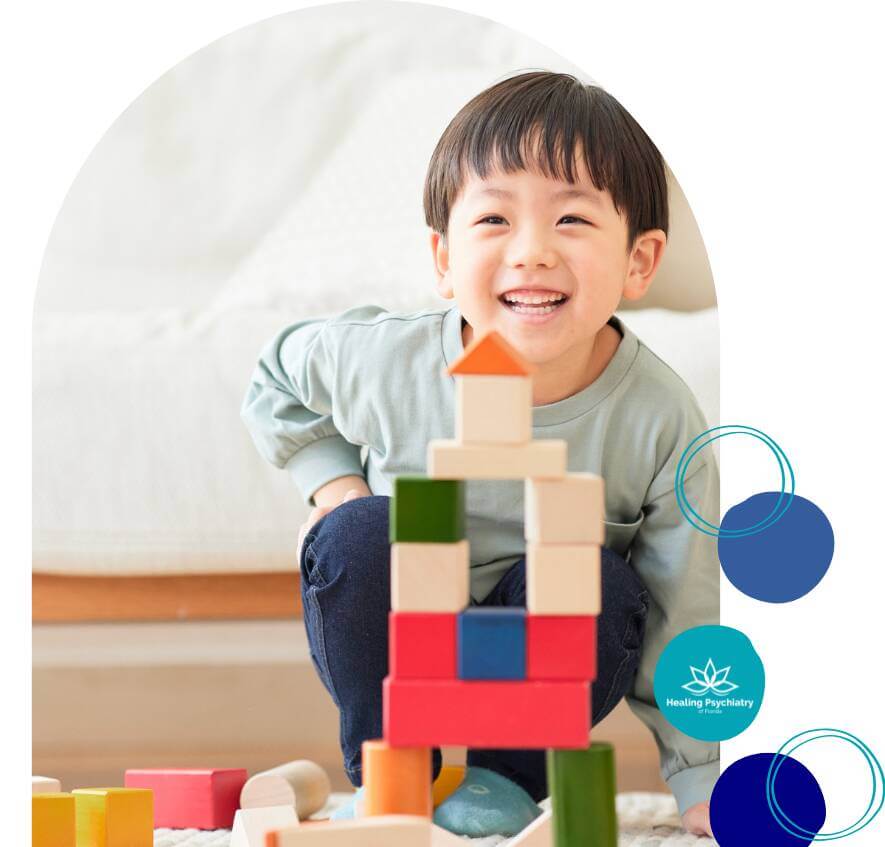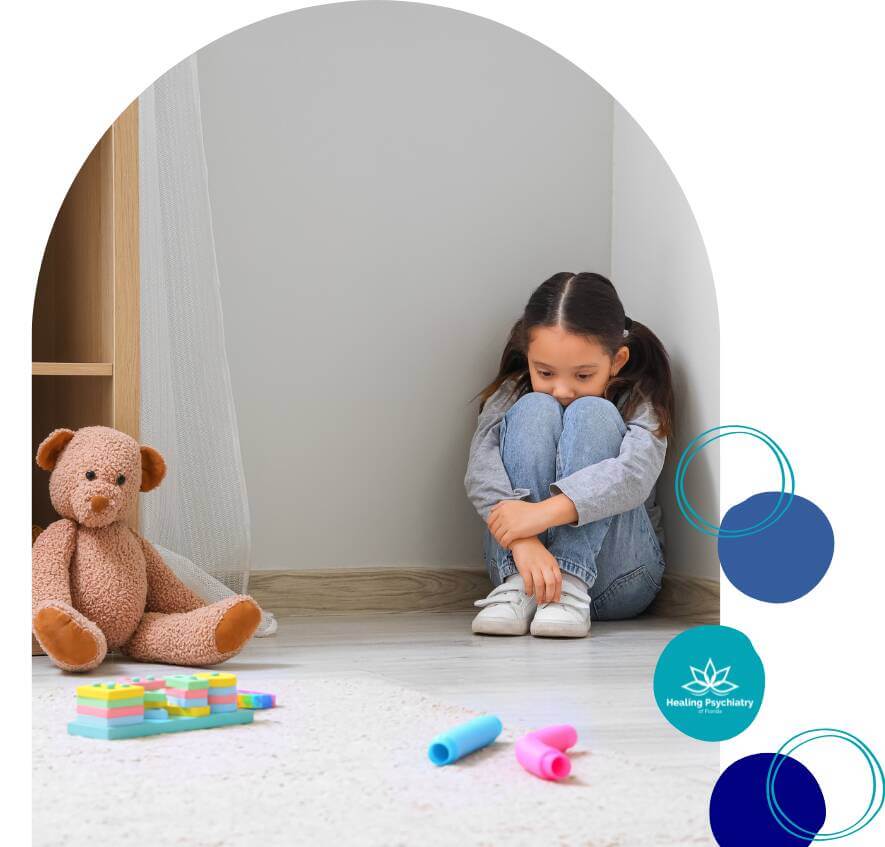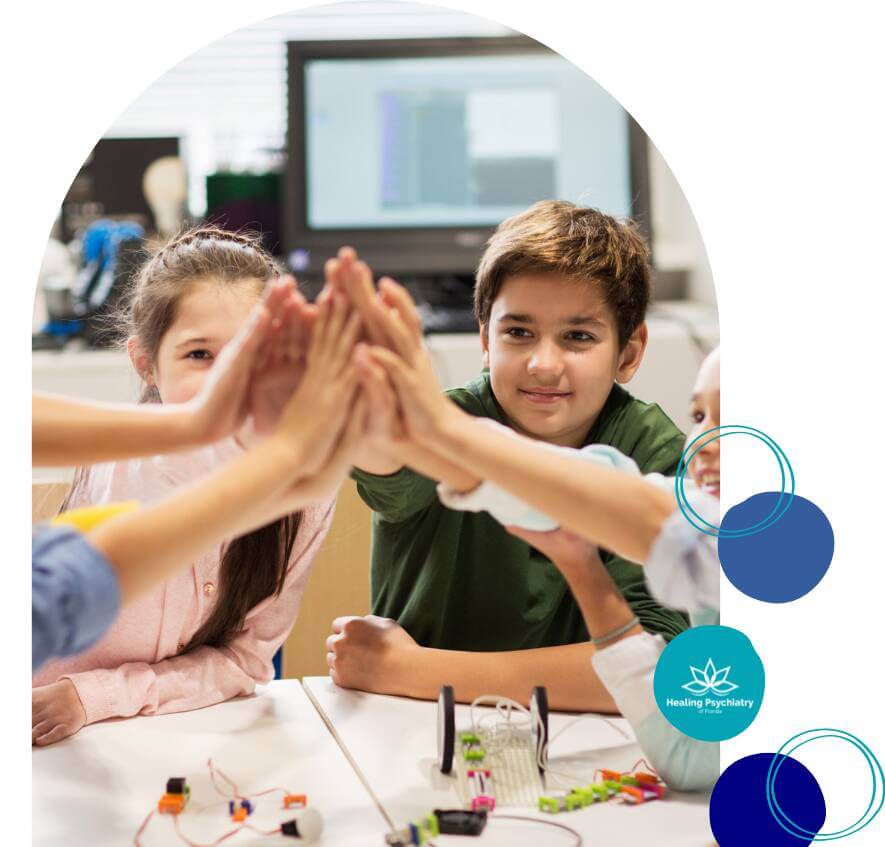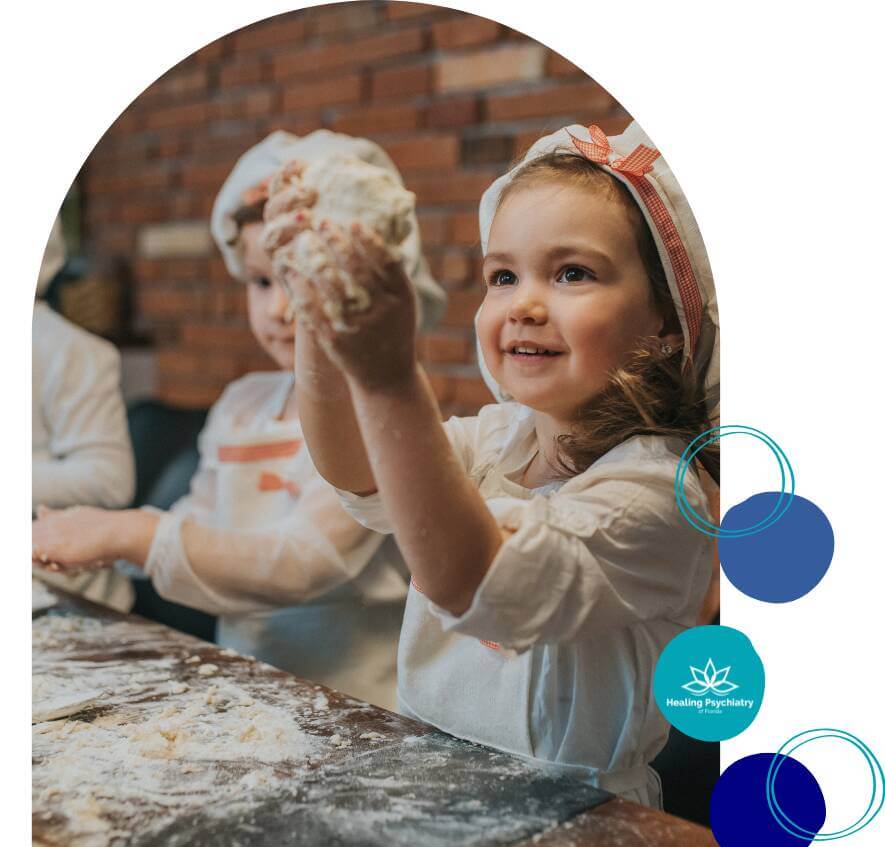Children’s Therapy for Social Challenges
At Healing Psychiatry of Florida, we help children ages 4–12 develop the social skills they need to build friendships, communicate clearly, and thrive in group settings. For many kids—especially those with ADHD, autism, or social communication challenges—reading social cues or joining conversations can feel overwhelming. These struggles often affect their confidence, emotional regulation, and daily interactions.
Our social skills therapy provides a safe space to practice communication, emotional awareness, and coping strategies. Through guided sessions, kids learn active listening, build self-esteem, and gain tools to form positive, lasting connections.

Start Your Session Today
Our Therapeutic Approach to Social Challenges
Children grow more confident in social settings when they are given space to practice, reflect, and connect with support. Therapy at Healing Psychiatry of Florida creates structured opportunities for children to build emotional insight and strengthen their communication abilities within a safe and supportive environment. Our approach blends individual support, group interaction, and family involvement to ensure children feel equipped to build lasting, healthy relationships.
One-on-One Therapy to Build Emotional and Social Insight
Therapy sessions are tailored to each child’s communication style, developmental level, and emotional needs. Techniques such as dialectical behavior therapy (DBT), child-centered play therapy, and applied behavior analysis help children express emotions, understand social boundaries, and manage emotions during stressful moments. Through therapeutic relationships, younger children learn to identify facial expressions, use appropriate body language, and engage in symbolic play that facilitates emotional expression.
Guided Peer Interaction in Safe Group Settings
Children benefit greatly from guided experiences in group therapy, where they participate in structured social learning within safe environments. These settings help children practice turn-taking, cooperation, and conflict resolution alongside peers who face similar challenges. Facilitated by a mental health professional, group sessions emphasize teaching children to recognize nonverbal communication, respond to social cues, and use language skills to build stronger connections.
Family Involvement and Environmental Reinforcement
Support at home and in social environments reinforces the skills children develop in therapy. Family therapy and parent collaboration sessions give caregivers the tools to understand social communication disorders, support behavior modeling, and guide social learning through everyday interactions. Creating a supportive environment helps children generalize their new skills into various social settings—whether at school, in playgroups, or at home.
Insurances Accepted










See what others are saying about Healing Psychiatry of Florida
Meet Our Specialists
The therapeutic team at Healing Psychiatry of Florida brings deep experience in supporting children with social communication challenges, emotional regulation needs, and behavioral disorders. Every therapist is a licensed mental health professional trained to identify subtle patterns in a child’s interactions and build therapeutic relationships that foster growth.




What Happens If Social Challenges Go Unaddressed
Children who struggle socially often experience isolation, self-doubt, and emotional withdrawal. When social skills deficits remain unaddressed, these difficulties can intensify over time, creating a ripple effect that reaches into adolescence and beyond. Avoidant behaviors, social anxiety, and poor conflict resolution habits frequently emerge, often misinterpreted as disinterest or immaturity.
Long-term consequences may include difficulty maintaining positive relationships, reduced academic engagement, and limited participation in group activities.
What Progress Looks Like
Children who engage in therapy begin to show measurable gains in confidence, peer interaction, and emotional expression. These shifts often appear first in small moments—making eye contact during conversation, initiating play, or calmly navigating disagreement with a friend. Progress grows through consistency, emotional awareness, and skill practice both in and outside of sessions.
Therapists guide children through structured goals that enhance social skills, support emotional growth, and reinforce problem-solving abilities.


Social Growth as a Foundation for Lifelong Identity
Social development builds more than just conversation skills—it shapes how a child sees themselves and their role in the world. Confidence in social environments contributes to stronger identity formation, emotional resilience, and the ability to navigate diverse perspectives. As children learn to express themselves, resolve conflicts, and manage emotions, they build a foundation for future relationships, leadership, and adaptability.
Therapy provides essential skills that influence not only how children connect with others but also how they interpret their own worth.
Children’s Therapy for Social Challenges FAQs
How does therapy address social skills deficits without overwhelming the child?
Addressing social skills deficits requires a structured, responsive approach. Therapy sessions meet the child at their current stage of development, focusing on small, achievable steps. Therapists use role play, visual supports, and emotionally safe activities to help children begin practicing new ways to interact. Each skill is introduced through repetition, modeling, and real-time feedback that supports confidence rather than pressure.
What qualifies as essential social skills for children at this age?
Essential social skills include the ability to take turns, recognize facial expressions, manage frustration, and respond appropriately in group settings. These foundational abilities help children navigate social interactions in school, play, and family life. Therapy targets these core areas directly through structured interaction, emotional coaching, and the development of language and nonverbal communication skills.
How do therapists encourage active participation from children who tend to withdraw socially?
How long does it take to see progress in therapy for social challenges?
Progress depends on the child’s individual goals, developmental history, and the complexity of their social challenges. Most children begin showing signs of growth, such as more frequent eye contact, improved emotional expression, or increased comfort in group settings, within the first several months. Consistency at home and in therapy reinforces those gains over time.
How is child development considered when designing a therapy plan for social growth?
Therapists assess social, emotional, and cognitive milestones as part of the initial evaluation and throughout treatment. Child development is a key factor in determining what skills are appropriate to introduce and how best to support progress. Younger children may focus more on foundational communication, while older children may begin working on peer negotiation and self-advocacy skills.
What makes social skill-building in therapy different from typical classroom social lessons?
Therapy offers personalized, emotionally guided interventions that go beyond classroom instruction. Social lessons in therapy are rooted in each child’s internal emotional experience, not just external behavior. Sessions focus on both skill-building and self-awareness, providing direct support for challenges that classroom environments may not have the capacity to address.
Contact us
For more information about our systems and services, contact Healing Psychiatry of Florida.
Healing Psychiatry of Florida
108 W Citrus St, Altamonte Springs, FL 32714
help@healingpsychiatryflorida.com
Opening Hours
Monday – Thursday: 8AM – 7PM
Friday: 8AM – 5PM
Saturday: Closed
Sunday: Closed
OCD Therapy Altamonte Springs, FL

